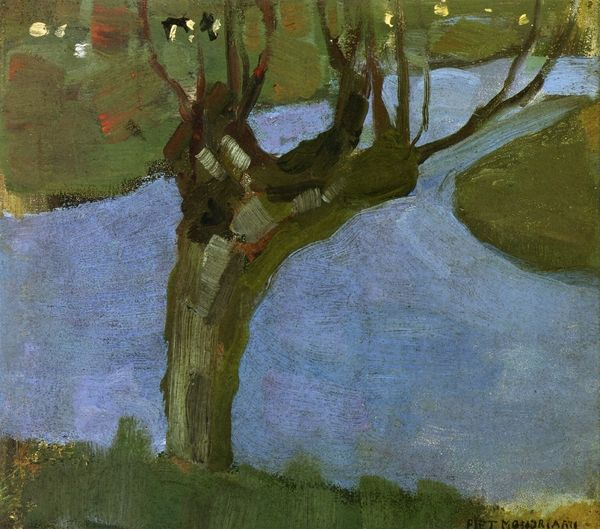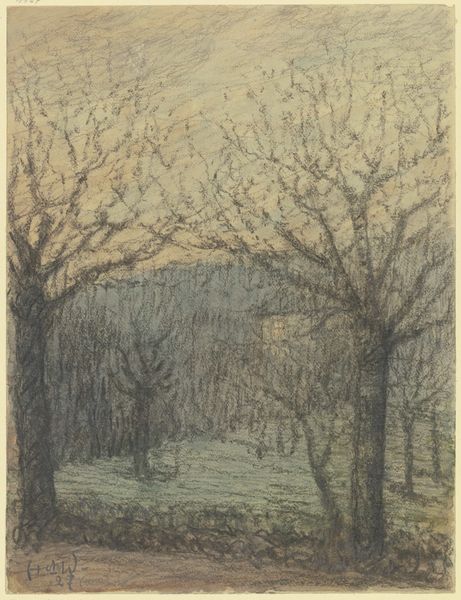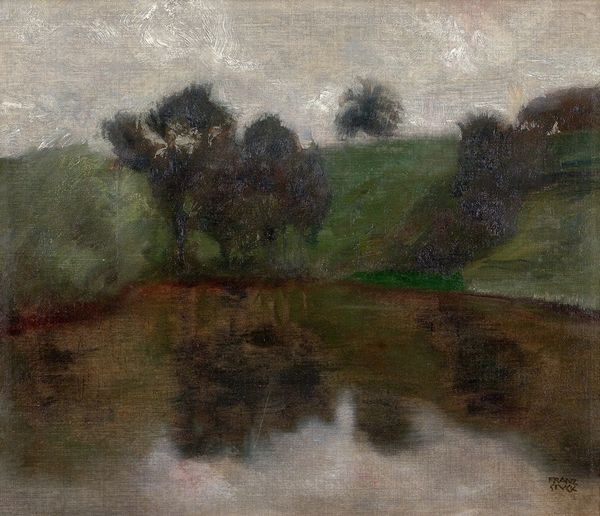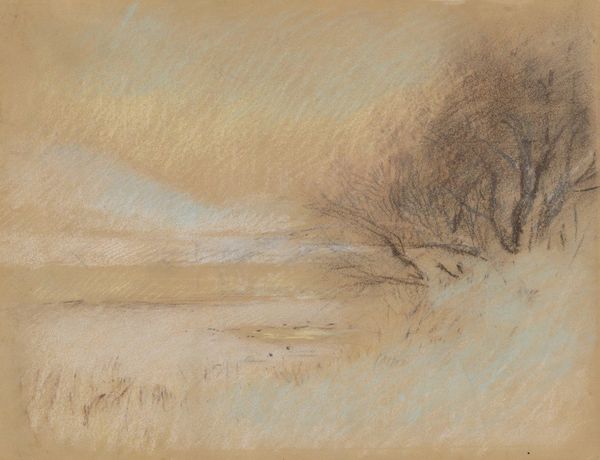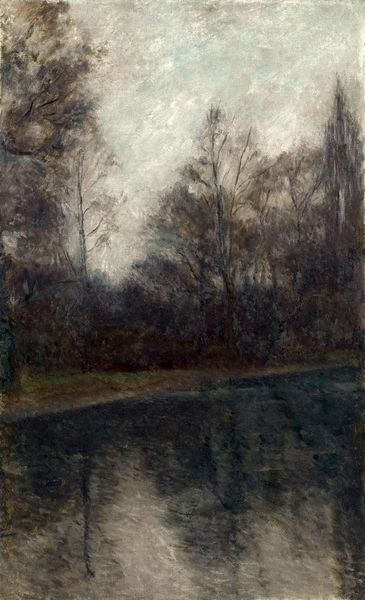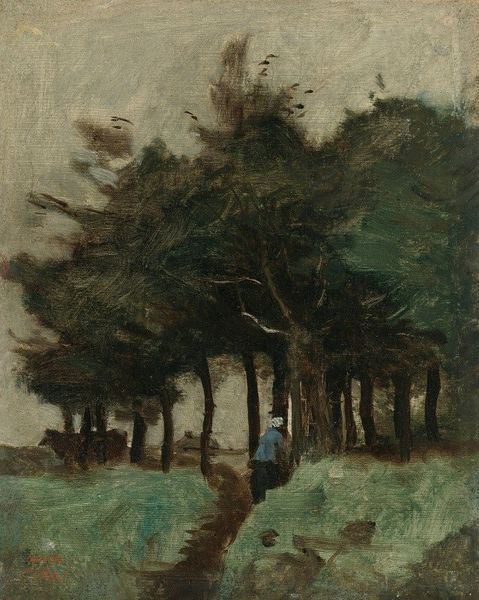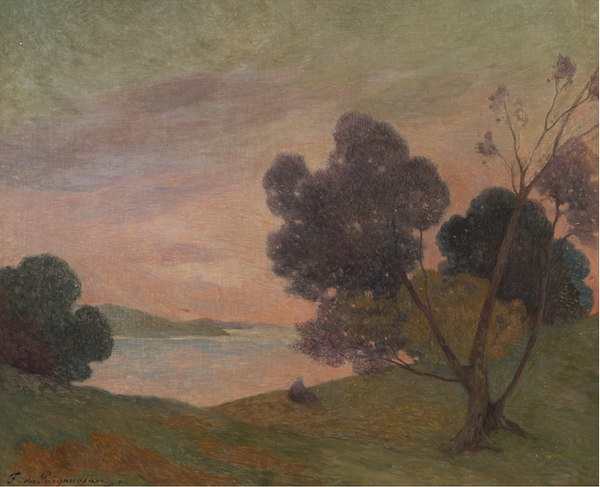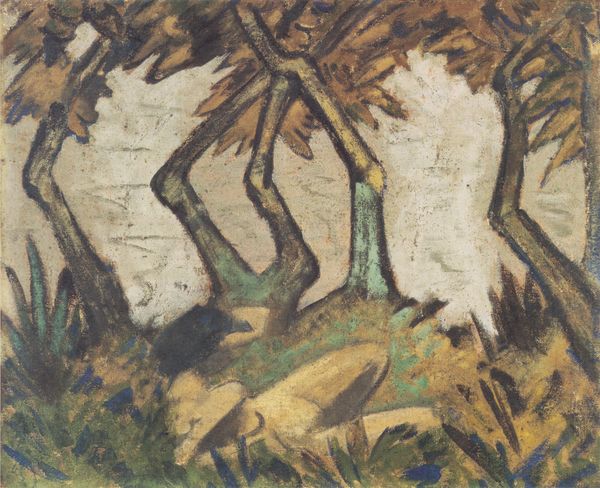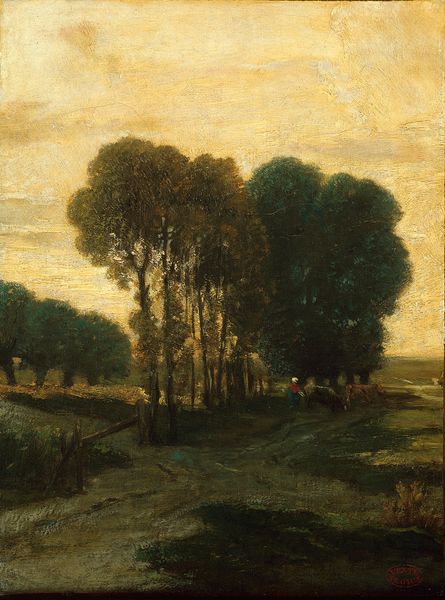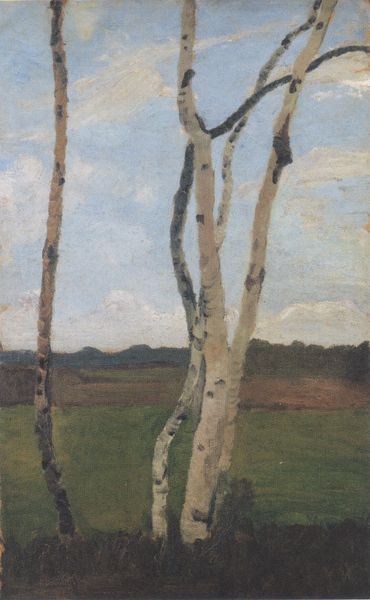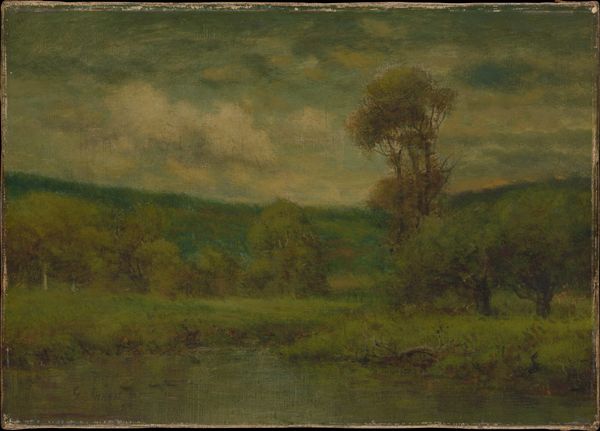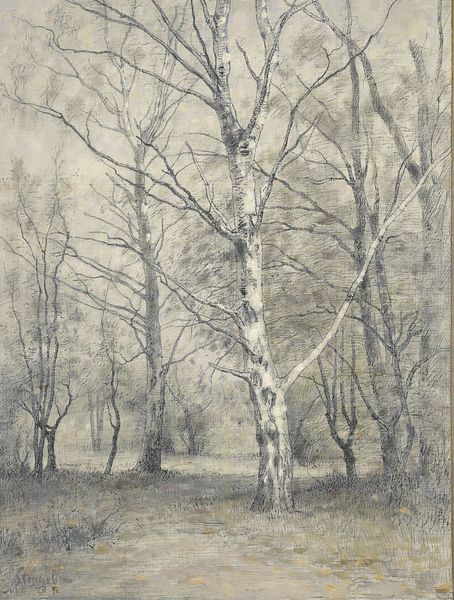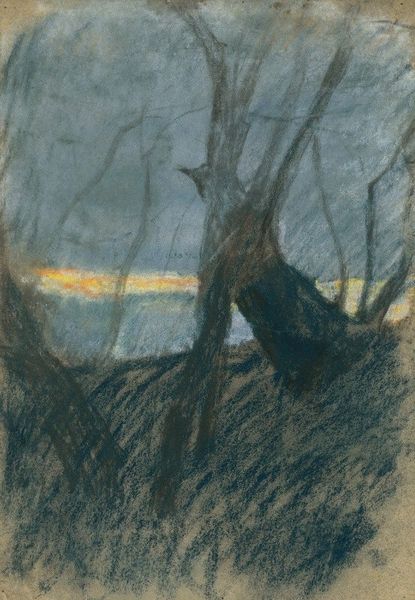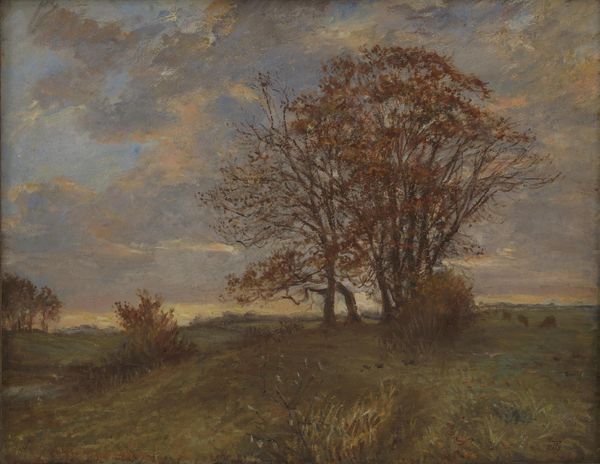
drawing, pastel
#
drawing
#
impressionism
#
landscape
#
coloured pencil
#
romanticism
#
cityscape
#
pastel
Copyright: Public domain
Curator: The artist Lesser Ury created this pastel drawing, titled "Weiher bei Einbruch der Dunkelheit," a scene capturing a pond as darkness descends. It feels undeniably melancholic, wouldn’t you say? Editor: There's certainly a pervasive moodiness—almost oppressive. But my eye is immediately drawn to the subtle dynamism created by the intersecting lines and the contrast between the stark tree trunks and the shimmering surface of the pond. The artist seems to use the structure of the natural world to almost build up and amplify this sentiment. Curator: I agree, and if we delve into the context surrounding Ury’s life, we understand how profound loss, anti-semitism and urban alienation, deeply marked his oeuvre. That’s also important when interpreting “Weiher bei Einbruch der Dunkelheit”, I think. It speaks to a society experiencing immense anxieties during a transitional period, as urbanization took hold, the landscape shifted, and human's relationship to the landscape changed forever. Editor: Perhaps. Yet, the reduction to color and form almost transcends the literal setting, turning the landscape into something more primordial. Consider the tonal range—the dusky blues, grays, greens—they don’t just depict twilight, they evoke a feeling of sublime apprehension. This visual language has more in common with Romanticism, I believe. Curator: Absolutely, we have to acknowledge both. What Ury captured wasn't solely a landscape. His landscapes operate more like a psychological portrait that’s projected onto nature. It holds social weight, which means that beyond the mere compositional reading that identifies romanticism, is the interpretation that can show that such aesthetics of romanticism had political roots. Editor: You see the weight in the trees, but I see movement: that shimmering water. Perhaps we both have a point. Curator: Yes. Looking through both lenses certainly enriches our appreciation.
Comments
No comments
Be the first to comment and join the conversation on the ultimate creative platform.
